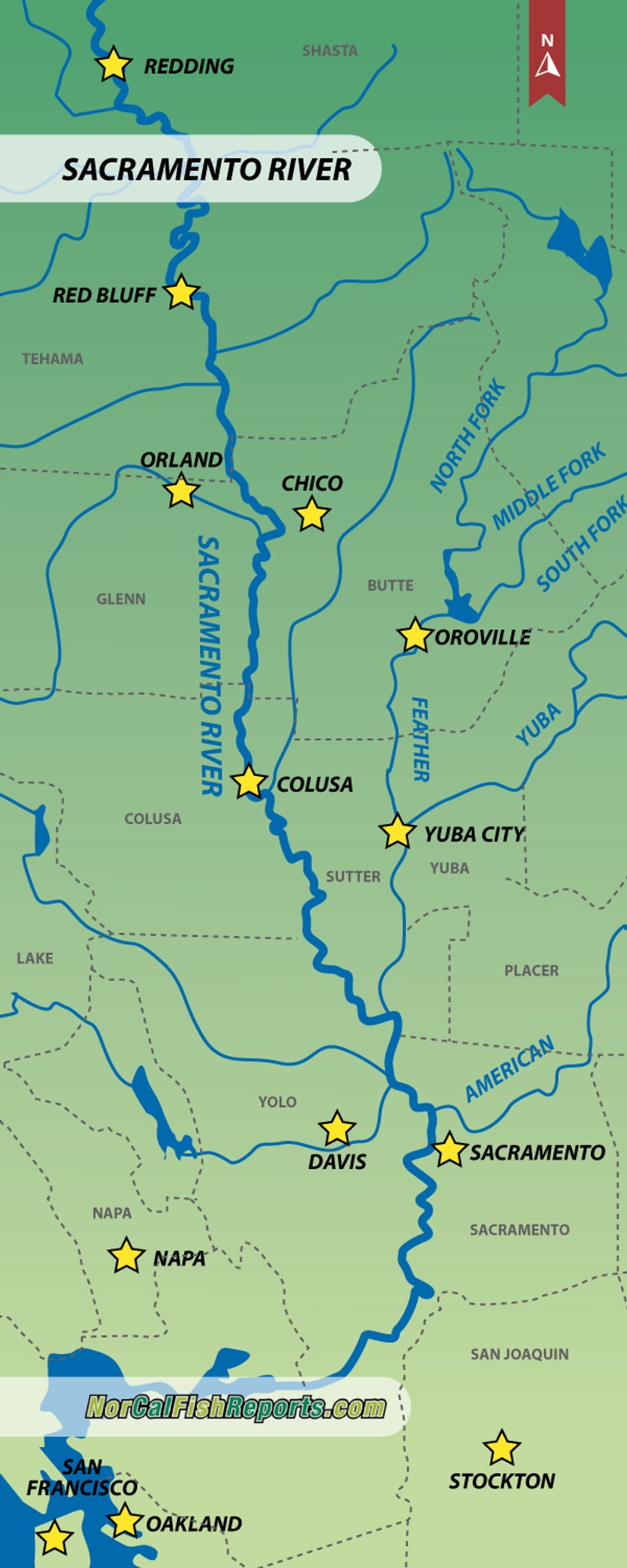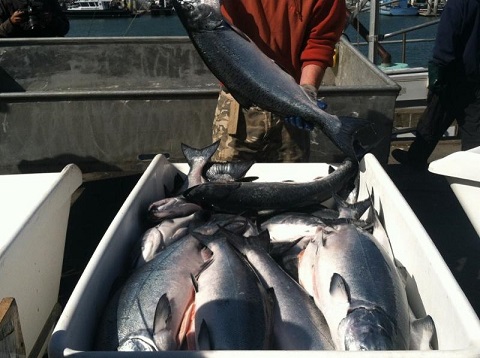Sacramento River Fish Report for 3-17-2017
Golden Gate Salmon Ass'n Comes Out Against Twin Tunnels
Sacramento River - CA

by Michael Coats
3-17-2017
Website
Based on new scientific information documenting that the twin tunnels project would worsen conditions for migrating salmon, the Golden Gate Salmon Association can’t support the tunnel plan as currently envisioned.
The National Marine Fisheries Service (NMFS) has released a draft biological opinion documenting harm the tunnels would do to salmon, other wildlife and water quality. An independent peer review panel found the NMFS findings are supported by comprehensive analyses, new data, and modeling. The panel further found NMFS used the best available science and produced evidence of significant adverse impacts to species and critical habitat, including unacceptable harm to salmon.
“The NMFS science and the peer review both make clear the current twin tunnels proposal will likely drive the salmon to extinction and will harm other wildlife. GGSA has no option but to oppose this project,” said John McManus, the executive director of the GGSA.
Some of the problems highlighted in the NMFS report include:
· The heavy flow through the fish screens at the giant water intakes in the Sacramento River located just downstream of Sacramento could impinge the juvenile salmon to the screens where they will perish.
· Those that survive impingement and are stressed or injured will be subject to heavy predation.
· The Sacramento River below the screens will be reduced to a relative trickle. The tiny salmon need strong flows to push them downstream. Without that, more predation and heavy losses will result.
· Lower flows downstream of the intakes will cause more juvenile salmon lost to the interior Delta through the Delta Cross Channel and Georgiana Slough.
· A major decrease of freshwater downstream of the intakes will also highly degrade water quality resulting in increased contaminants and decreased food sources.
· The models used to gauge the damage to salmon showed a zero percent chance the tunnels would help winter-run salmon. Instead the modeling showed a slow steady decline towards extinction for these salmon if the tunnels are built and operated as currently envisioned.
The NMFS report also highlights two upstream issues:
· Salmon egg and alevin mortality on the American River under the tunnels project “clearly” results in adverse effects on fall run salmon, the mainstay of the sport and commercial fishery
· Increased loss of federally protected winter and spring run salmon will occur from dewatering of their incubating eggs in upstream river gravels
“This project will not only destroy the salmon, but it also threatens the jobs of the thousands of people who depend on healthy salmon runs, including fishermen, tackle shops, boat shops, launch ramp operators, marinas, and many others,” said GGSA director Mike Aughney. “It’s time to admit this version of the tunnel idea won’t work. There’s no doubt the status quo is very bad for salmon but this giant twin tunnels proposal obviously isn’t the answer.”
“The State Water Board’s update of the water quality control plan, including new flow standards to protect salmon, water quality, and the health of the delta, also needs to be completed before any tunnel project can be properly considered and designed,” said GGSA secretary Dick Pool.
The Golden Gate Salmon Association (goldengatesalmonassociation.org) is a coalition of salmon advocates that includes commercial and recreational salmon fisherman, businesses, restaurants, a native tribe, environmentalists, elected officials, families and communities that rely on salmon. GGSA’s mission is to protect and restore California’s largest salmon producing habitat comprised of the Central Valley river’s that feed the Bay-Delta ecosystem and the communities that rely on salmon as a long-term, sustainable, commercial, recreational and cultural resource.
Currently, California’s salmon industry is valued at $1.4 billion in economic activity annually and about half that much in economic activity and jobs again in Oregon in a normal season. The industry employs tens of thousands of people from Santa Barbara to northern Oregon. This is a huge economic bloc made up of commercial fishermen, recreational fishermen (fresh and salt water), fish processors, marinas, coastal communities, equipment manufacturers, the hotel and food industry, tribes, and the salmon fishing industry at large.
< Previous Report Next Report >
< Previous Report Next Report >
More Reports
GGSA: Support Salmon and save on taxes
San Francisco Bay
12-27-2016
If you caught a salmon in 2016, you can thank GGSA. Others helped, but we almost certainly would not have had...... Read More
GGSA Red Bluff Salmon Derby Winner
Sacramento River - Red Bluff.jpg)
9-20-2016
Fisherman Dan Hofbauer won the $1000 first prize for the biggest salmon in last Saturday’s annual Golden Gate Salmon Association...... Read More

Website Hosting and Design provided by TECK.net